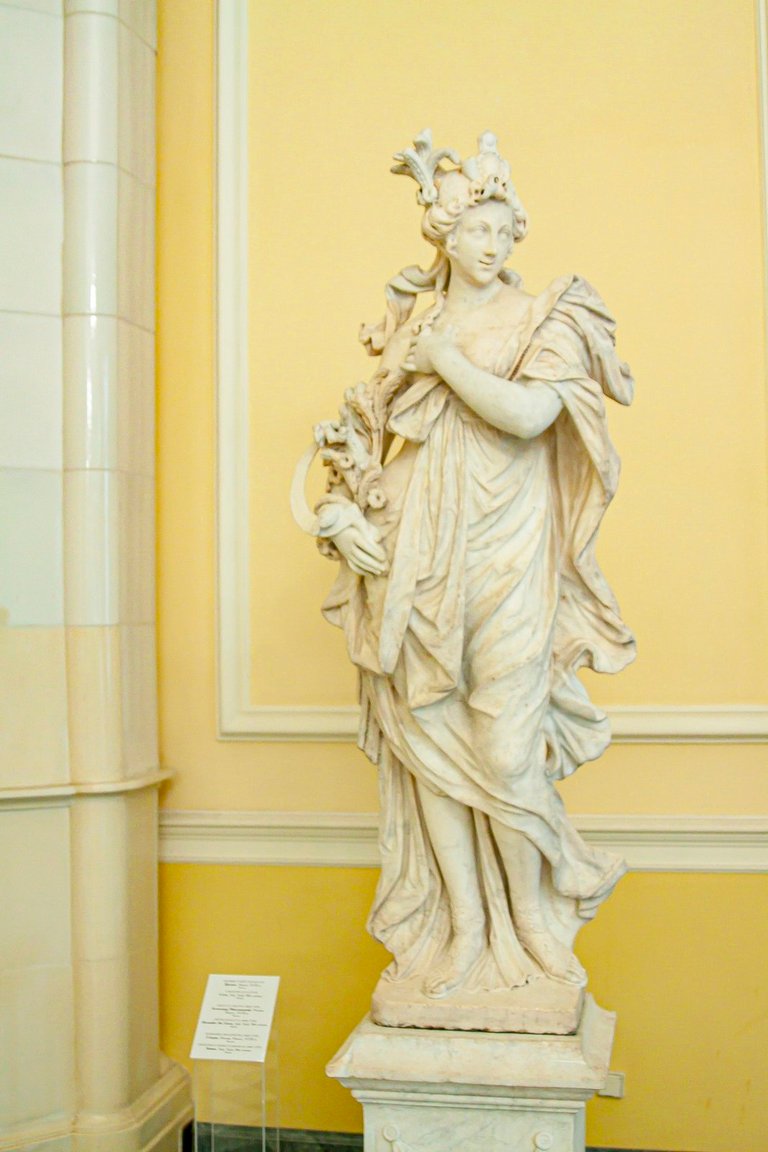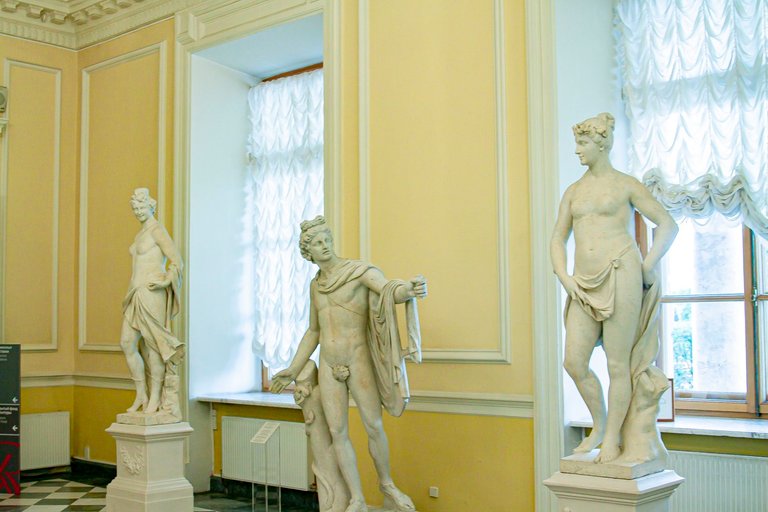
Hello to all travel lovers! Today I have prepared another publication on the topic of a tour of the Mikhailovsky Castle in St. Petersburg. I will tell you about another hall with sculptures, and I must say, I was surprised by the fact of this collection.
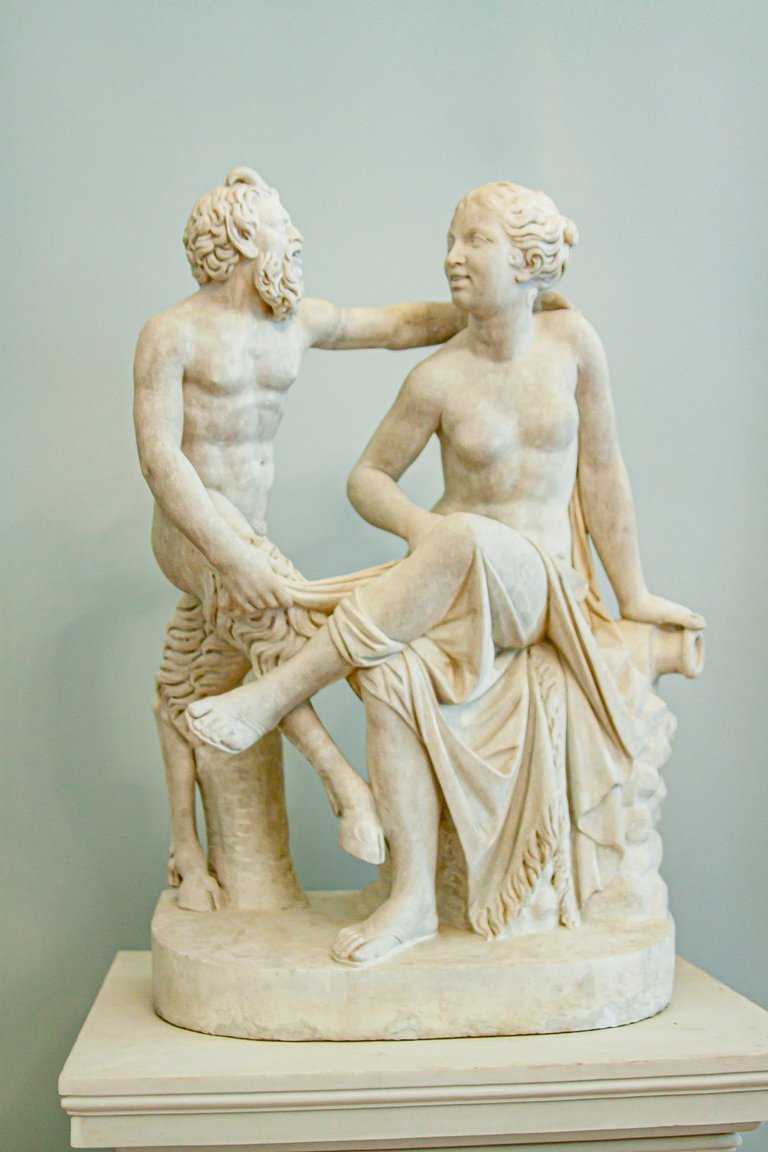
ONLINE REFERENCE: Peter's marble collection includes various types of plastic images: busts, a round sculpture in height, as well as sculptural groups, including the famous composition "Cupid and Psyche", created, probably, by one of Lorenzo Bernini's students. The main core of Peter's collection has been preserved: allegories dedicated to military victories, the foundation of St. Petersburg, the virtues of the monarch; marble portraits of heroes and famous historical characters; images of ancient gods, nymphs, characters of ancient myths, fortune tellers – sibyls.
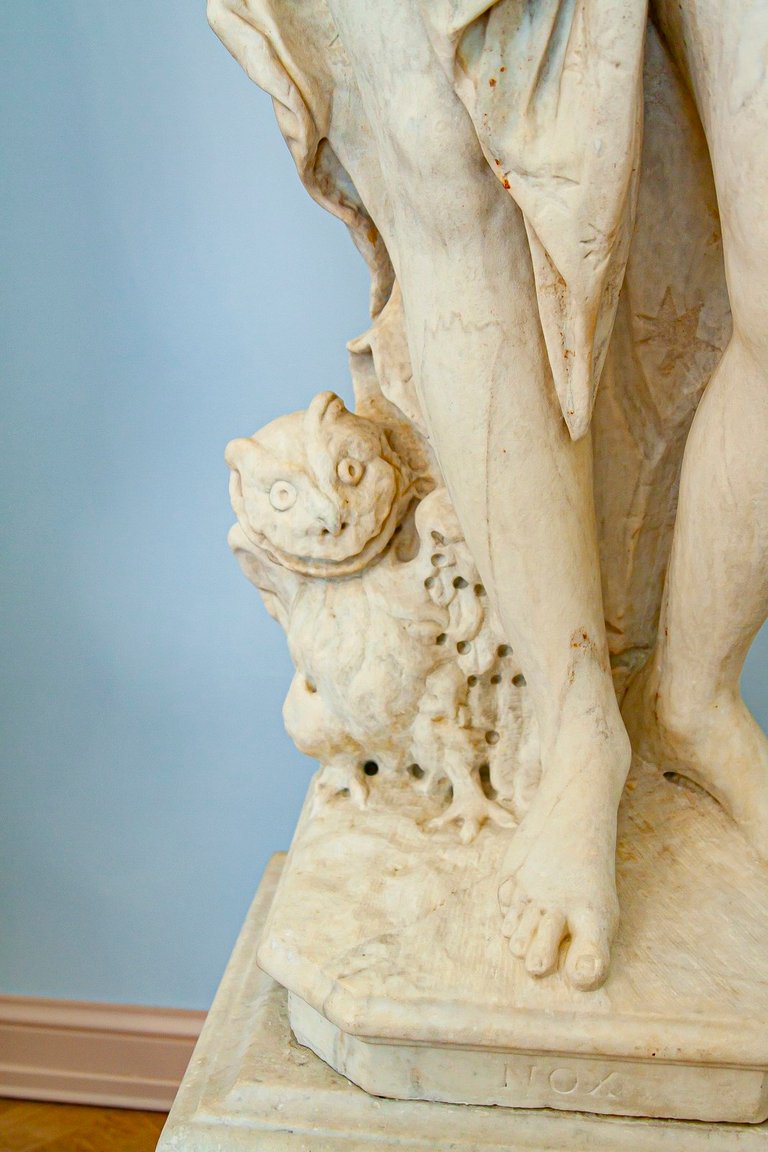
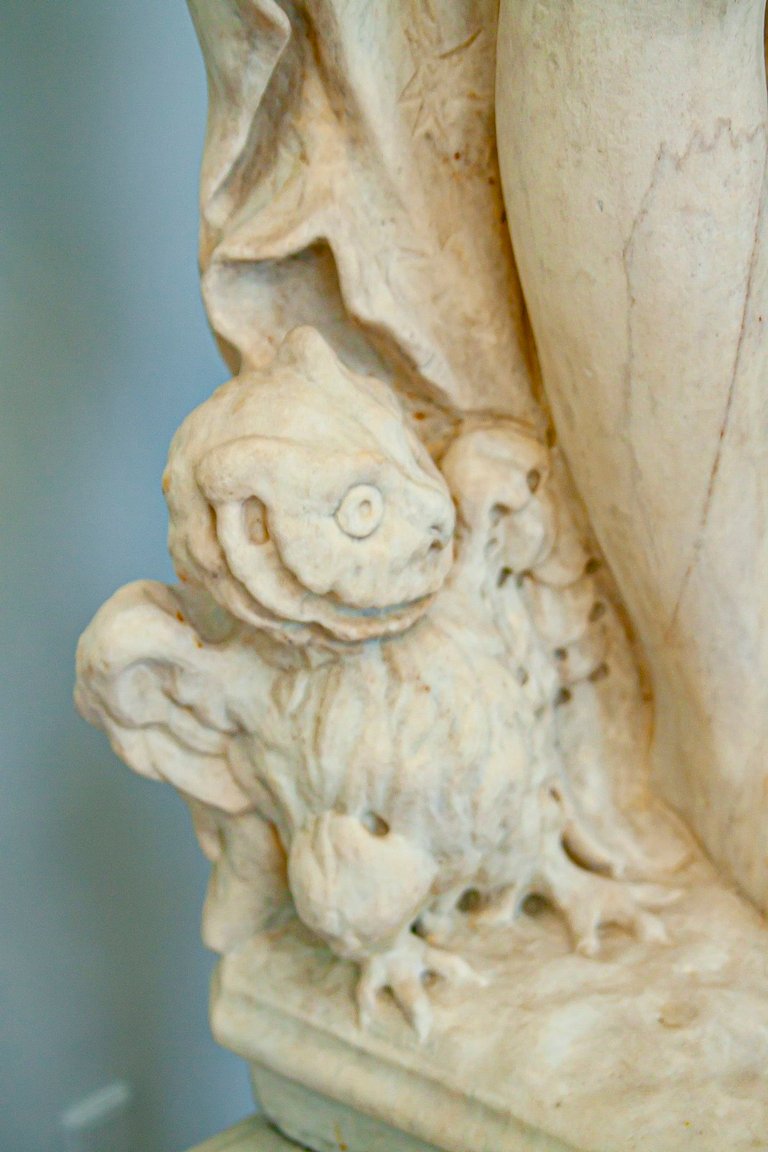
The fact is that I have already talked about the sculptures that are on display in the castle, but there we were talking about those monuments that Emperor Paul I specially purchased for the Summer Garden. But as it turned out, earlier Peter the Great also bought sculptures in Italy and were not intended for the Summer Garden in the same way.
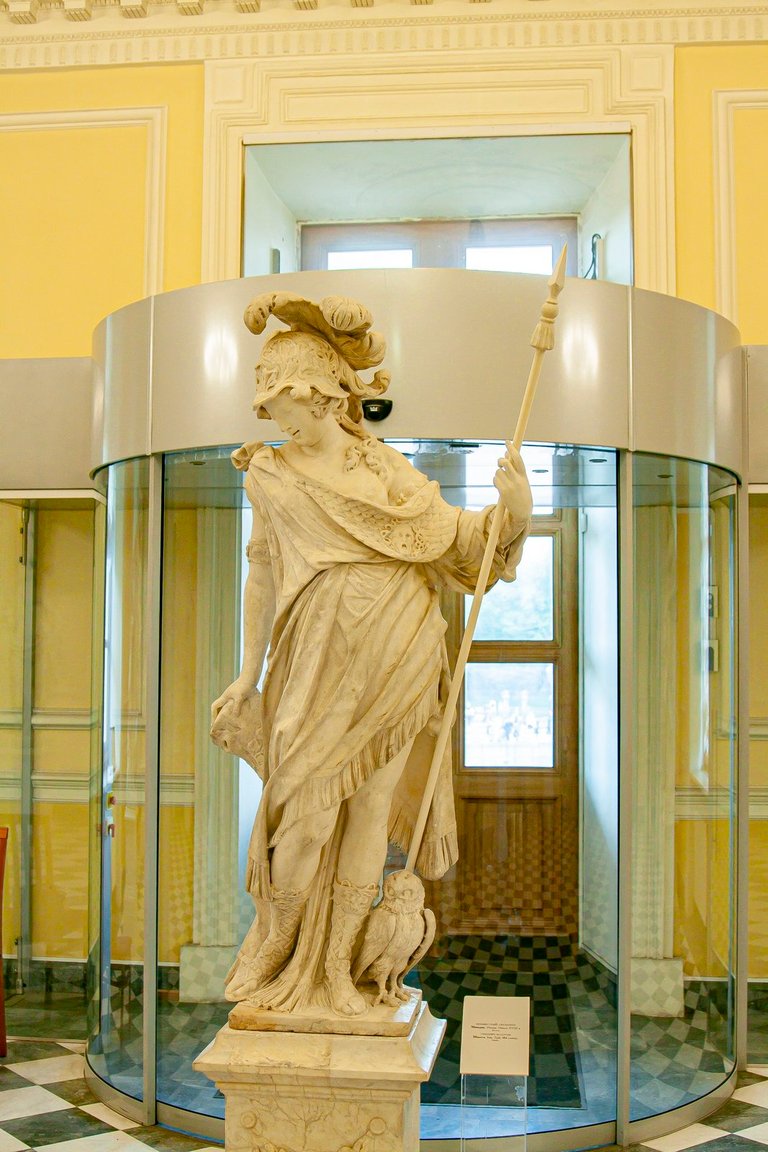
Therefore, there are two halls with sculptures in the Mikhailovsky castle - one from the Petrine era, and the other from the Pavlovian era. To be honest, there is a difference between them. If you look closely at both, it is clearly noticeable that one collection is older, the marble on the statues is very different in color.
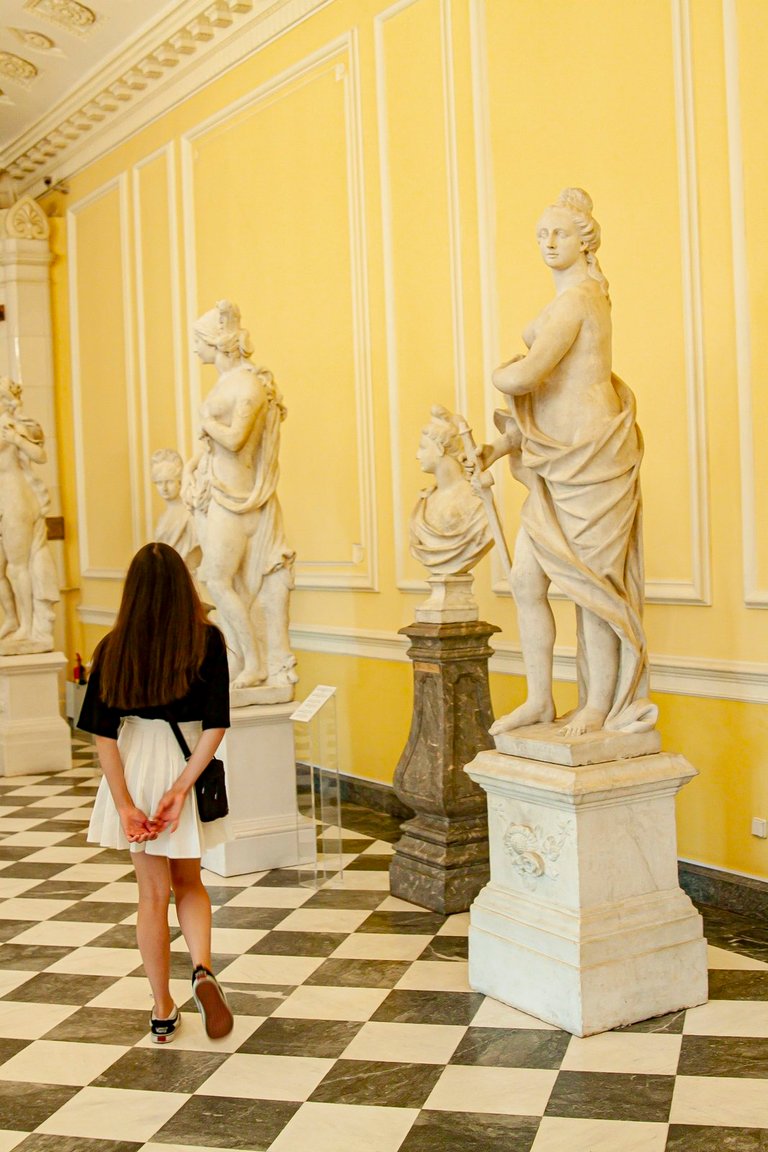
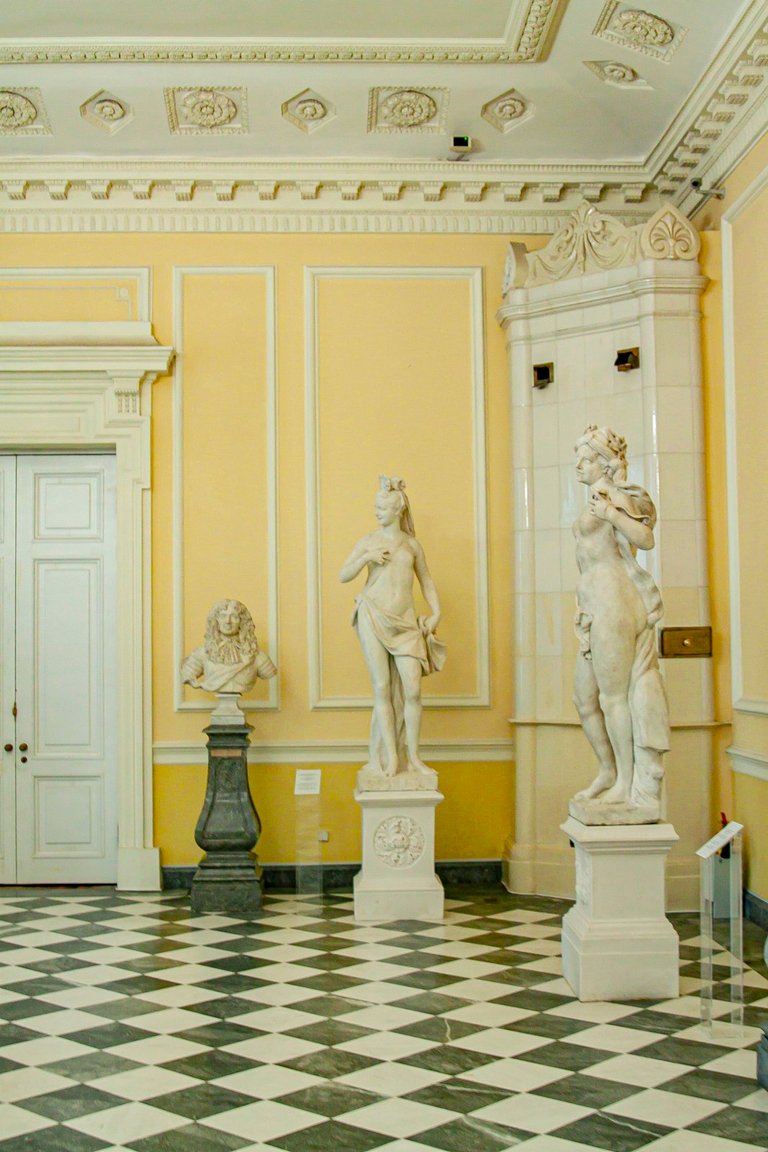
Both these and other sculptures have survived many years of the harsh St. Petersburg climate. There have been severe winters and floods. And during the blockade of the Great Patriotic War, the collection of sculptures of the summer garden was generally hidden from bombing underground, where they were stored until the victory.
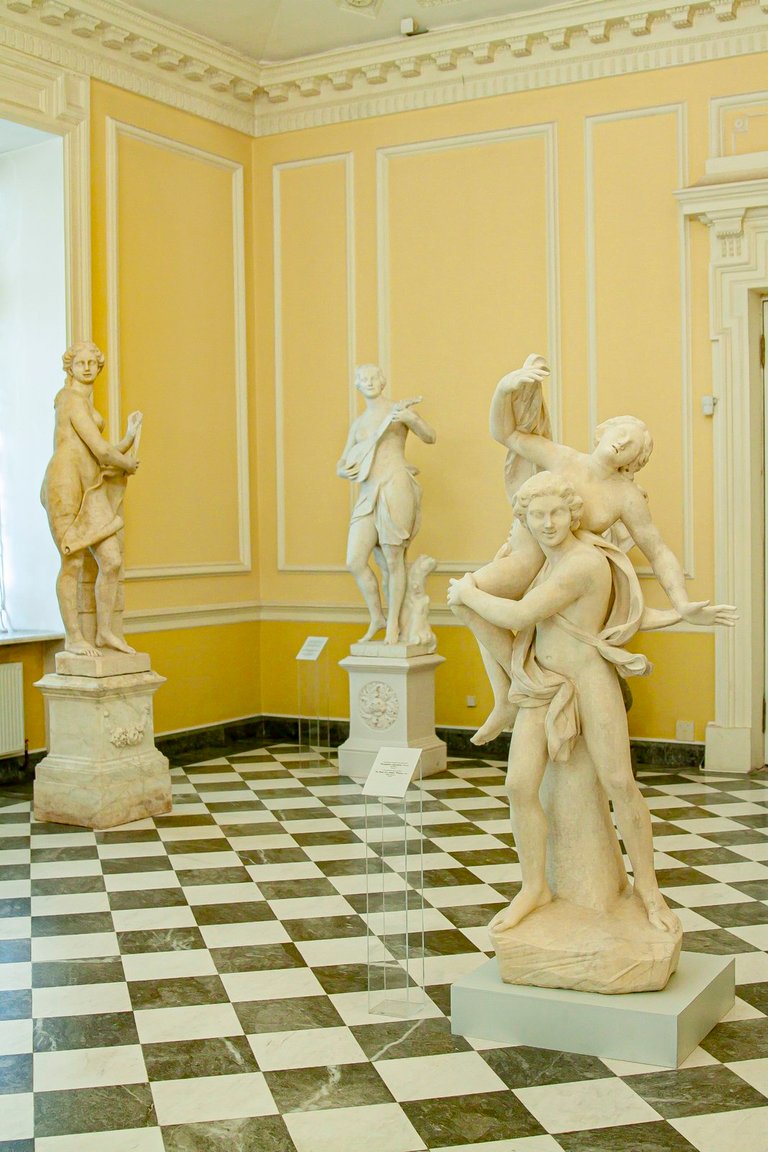
Today, all these sculptures are on display in the halls of the Mikhailovsky Castle, and copies are installed in the Summer Garden. It's probably really better this way, because walking through the halls of the castle you can see with your own eyes those statues that are really of historical value.

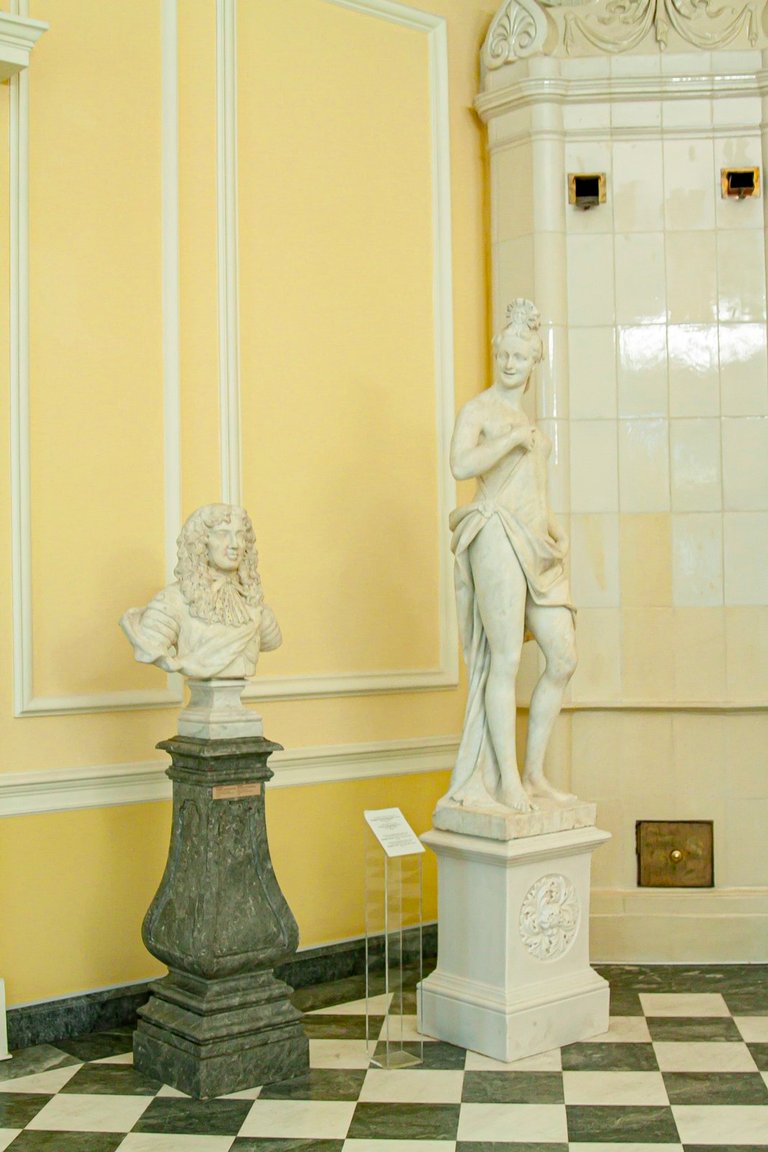
Tomorrow we will continue our review of the museum's halls, there are a couple more interesting publications ahead of us, but these expositions belong to a more modern era. And that's it for today!
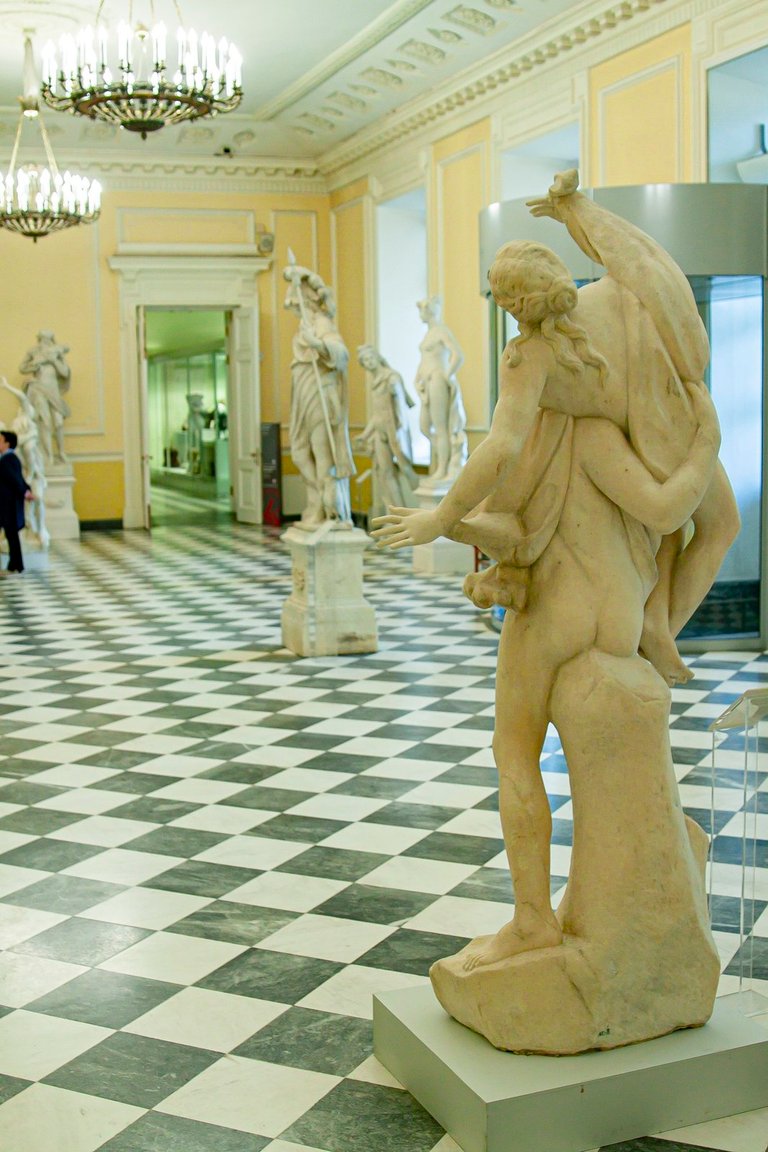
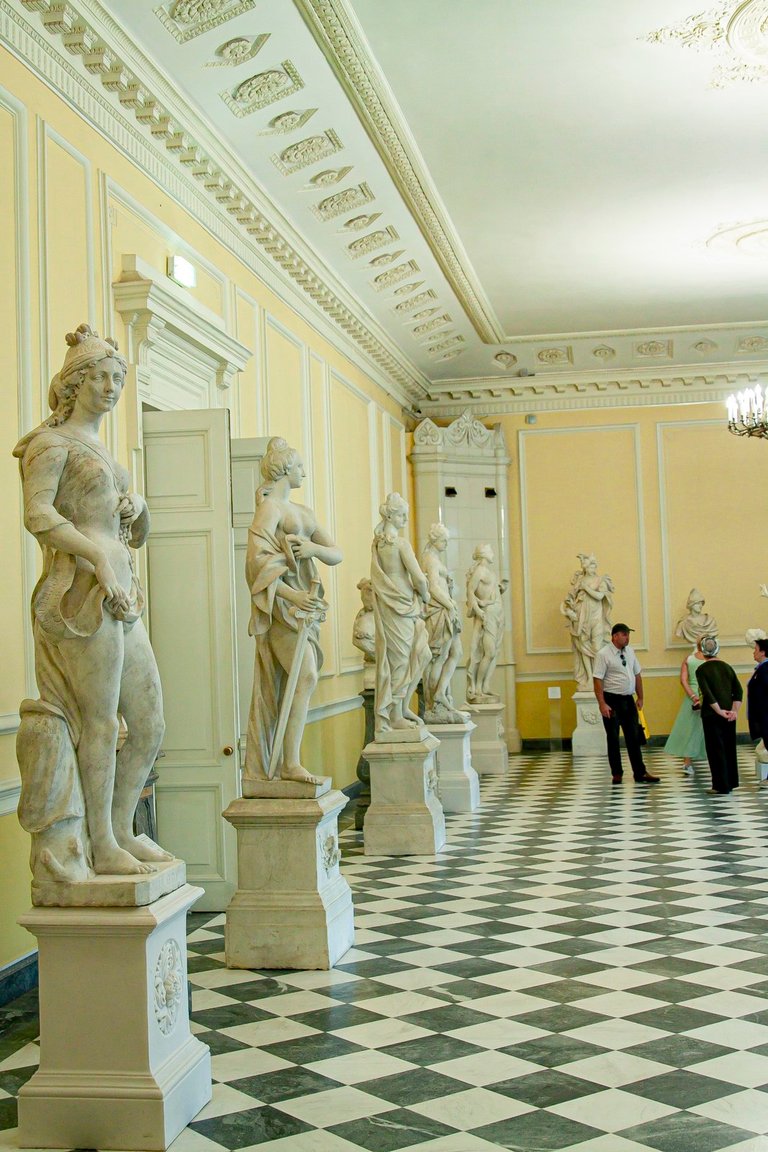
Привет всем любителям путешествий! Сегодня у меня приготовлена очередная публикация на тему экскурсии по Михайловскому замку в Петербурге. Я расскажу ещё об одном зале со скульптурами и надо сказать, меня самого удивил факт наличия этой коллекции.
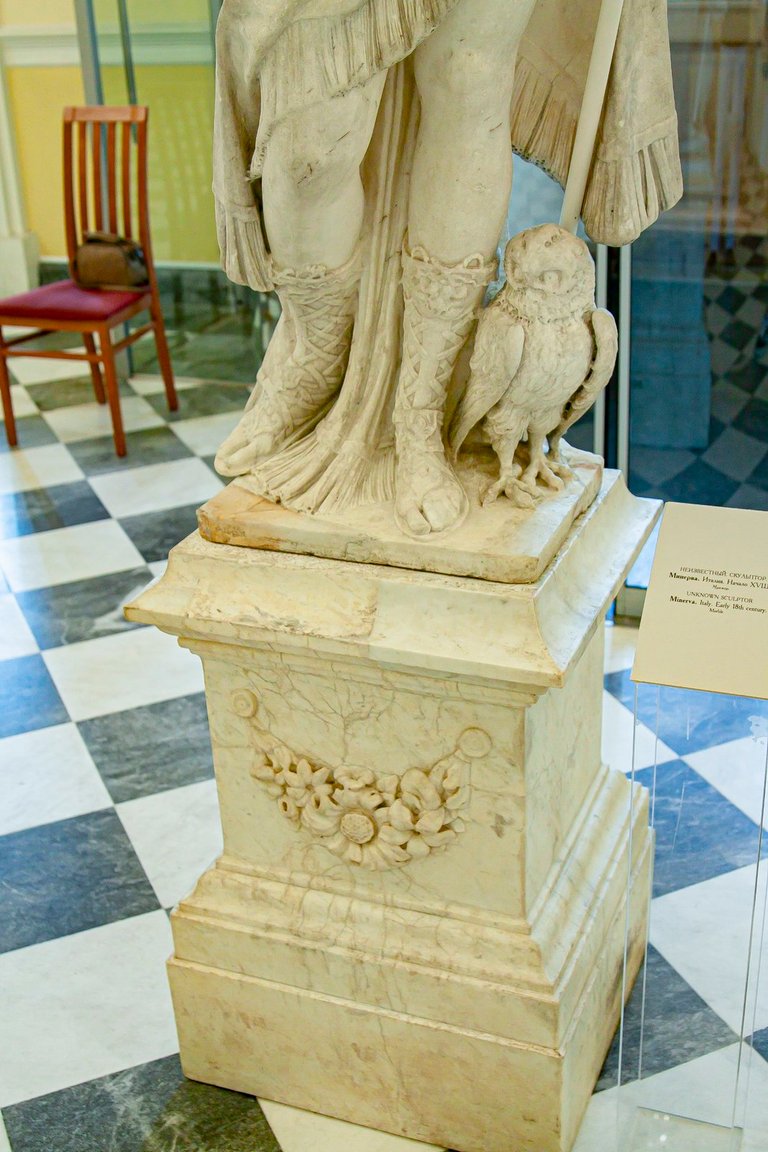
СПРАВКА из СЕТИ: Петровская коллекция мрамора включает разные типы пластических изображений: бюсты, круглую скульптуру в рост, а также скульптурные группы, в том числе знаменитую композицию «Амур и Психея», созданную, вероятно, одним из учеников Лоренцо Бернини. Сохранилось основное ядро петровской коллекции: аллегории, посвященные воинским победам, основанию Санкт-Петербурга, добродетелям монарха; мраморные портреты героев и знаменитых исторических персонажей; изображения античных богов, нимф, персонажей древних мифов, предсказательниц судьбы – сивилл.
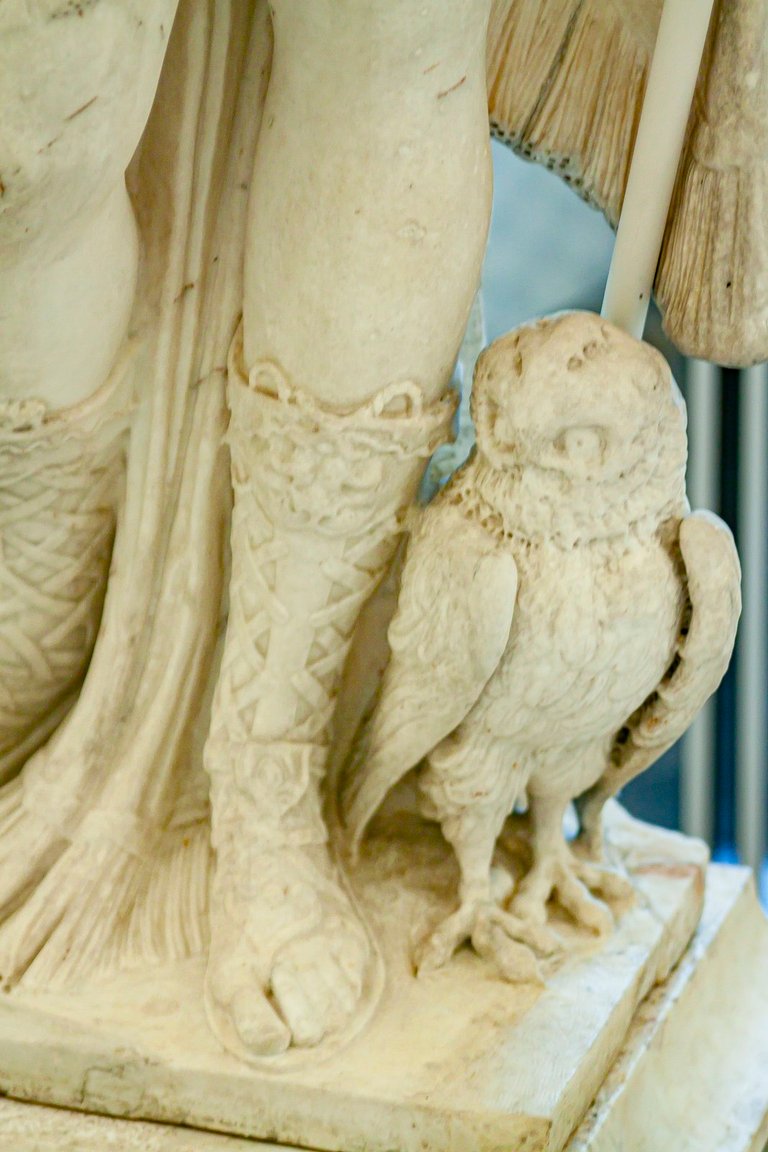
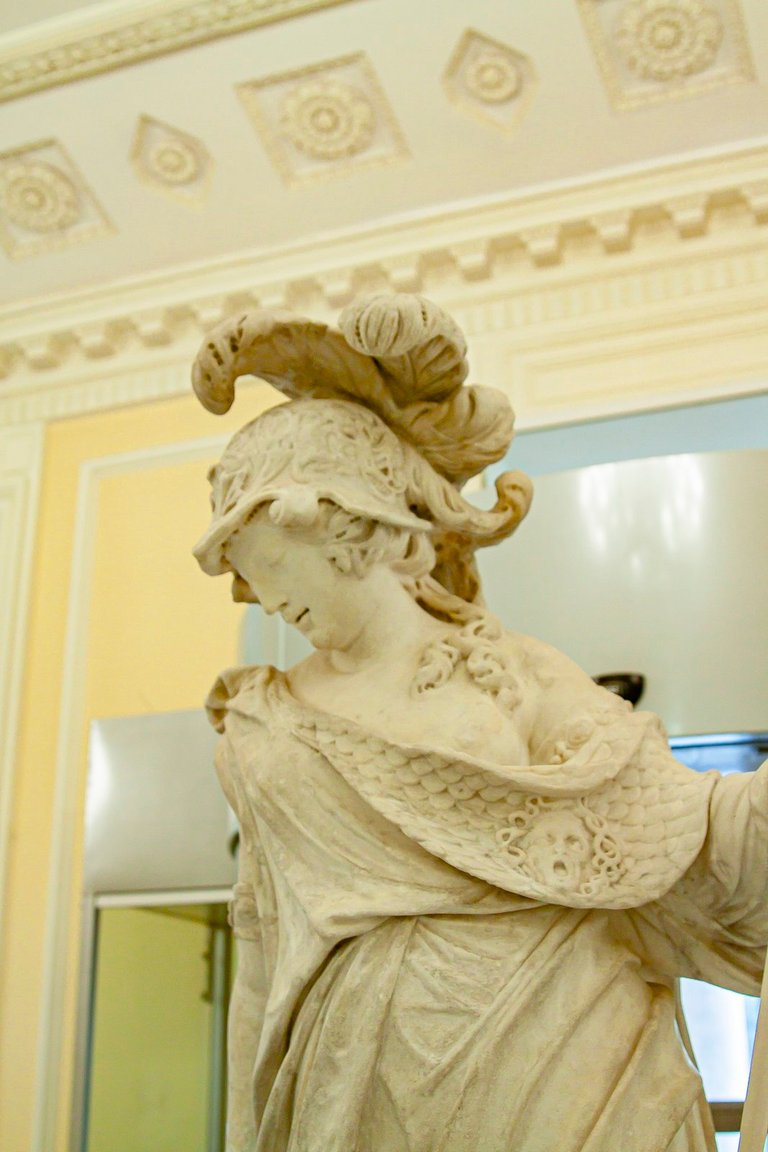
Дело в том, что ранее я уже рассказывал о скульптурах, которые выставлены в замке, но там речь шла о тех монументах, которые император Павел I специально закупил для Летнего сада. Но как оказалось, ранее Пётр I так же закупал скульптуры в Италии и не так же предназначались для Летнего сада.
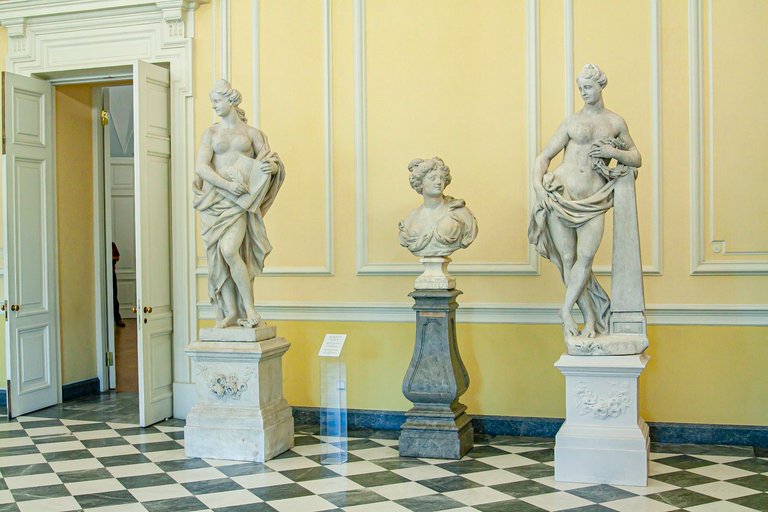
Поэтому в михайловском замке два зала со скульптурами - одни петровской эпохи, а другие - павловской. Честно говоря, отличие между ними есть. Если вы внимательно посмотрите на те и другие, явно заметно, что одна коллекция более старая, мрамор на изваяниях сильно отличается по цвету.
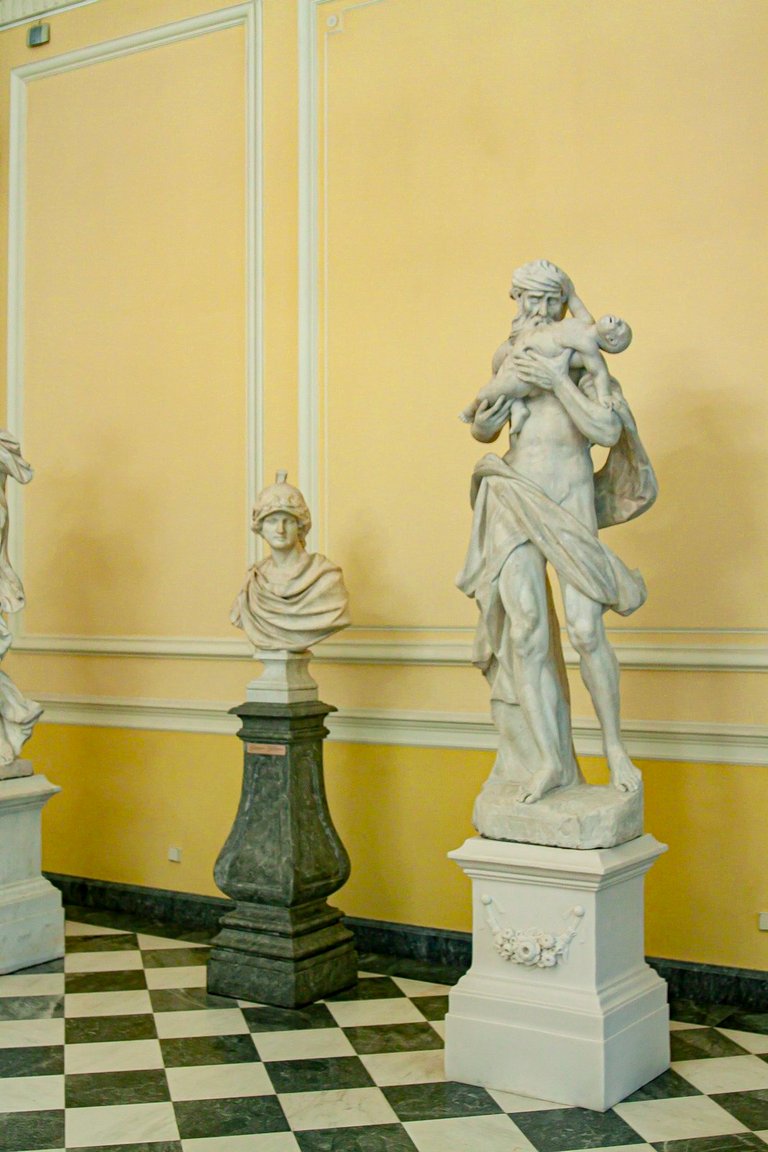
Как то, так и другие скульптуры пережили много лет сурового петербургского климата. Бывали и суровые зимы и наводнения. А в блокаду Великой Отечественной войны коллекцию скульптур летнего сада вообще прятали от бомбёжек под землю, где они хранились до самой победы.
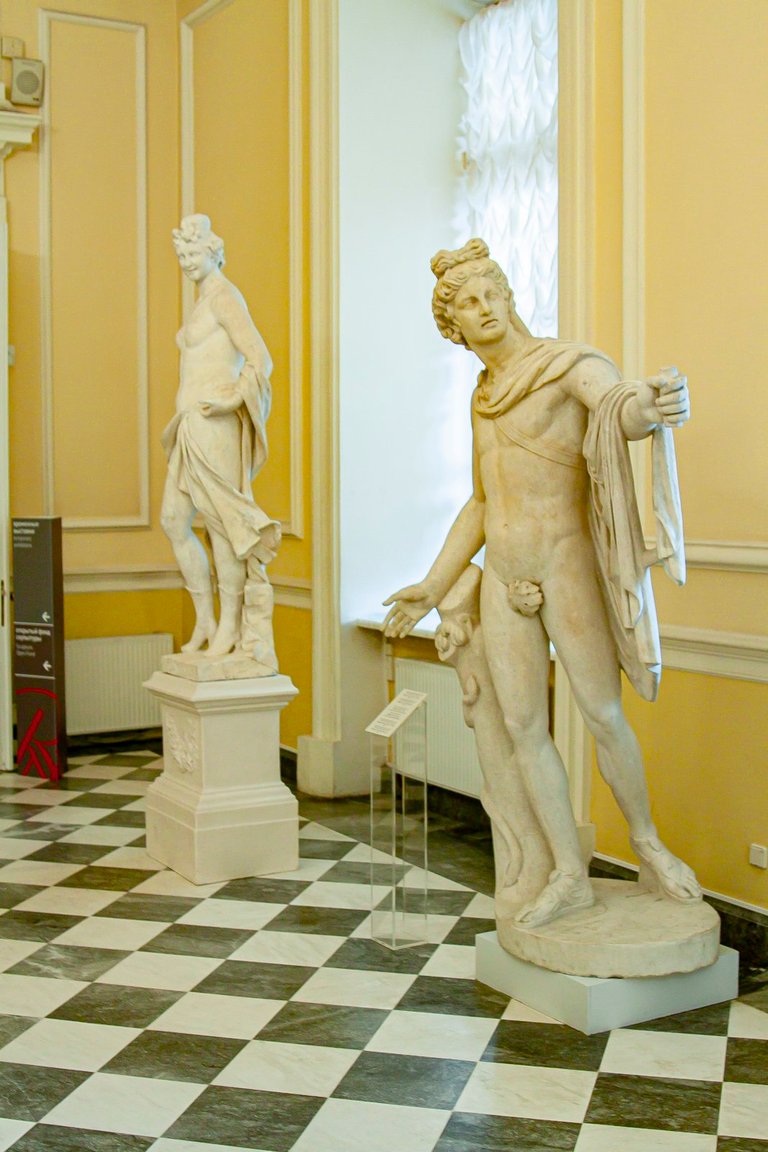
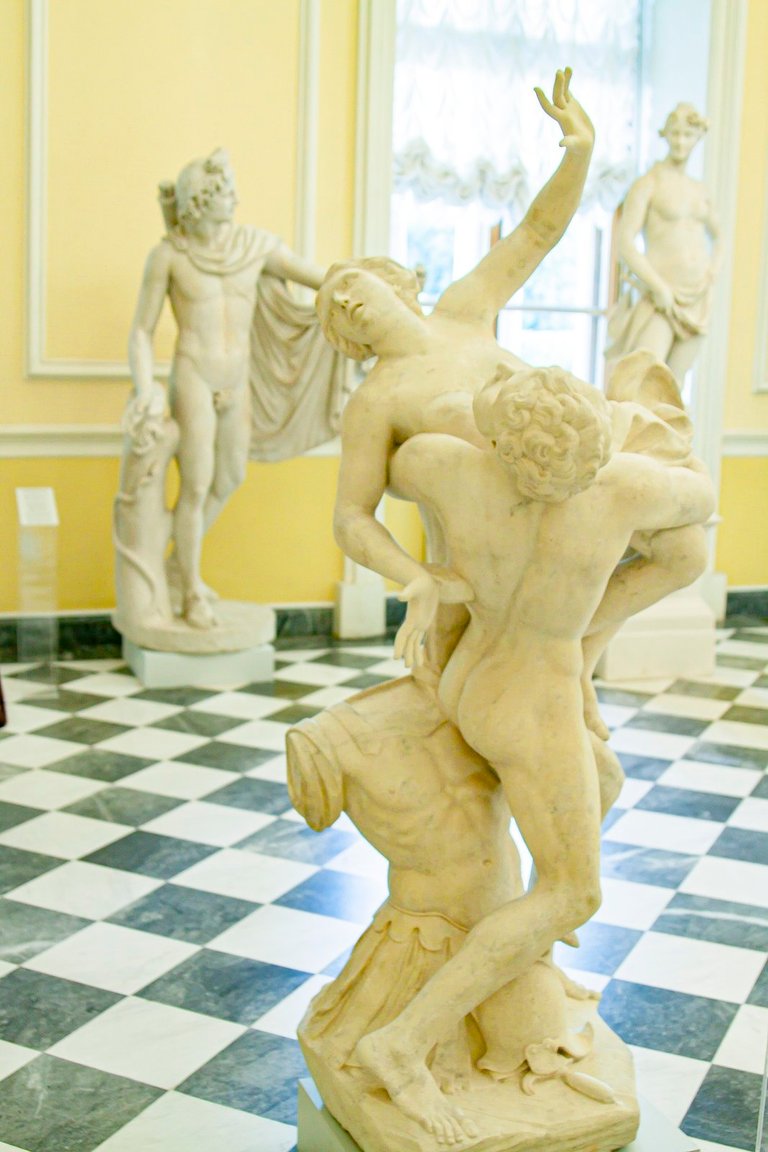
Сегодня все эти изваяния выставлены в залах Михайловского замка, а в Летнем саду установлены копии. Наверное так быдет и вправду лучше, ведь гуляя по залам замка можно воочию увидеть те самы изваяния, которые действительно представляют историческую ценность.

Завтра мы продолжим обзор залов музея, впереди нас ждёт ещё пара интересных публикаций, но эти экспозиции относятся к более современной эпохе. А на сегодня у меня всё!
